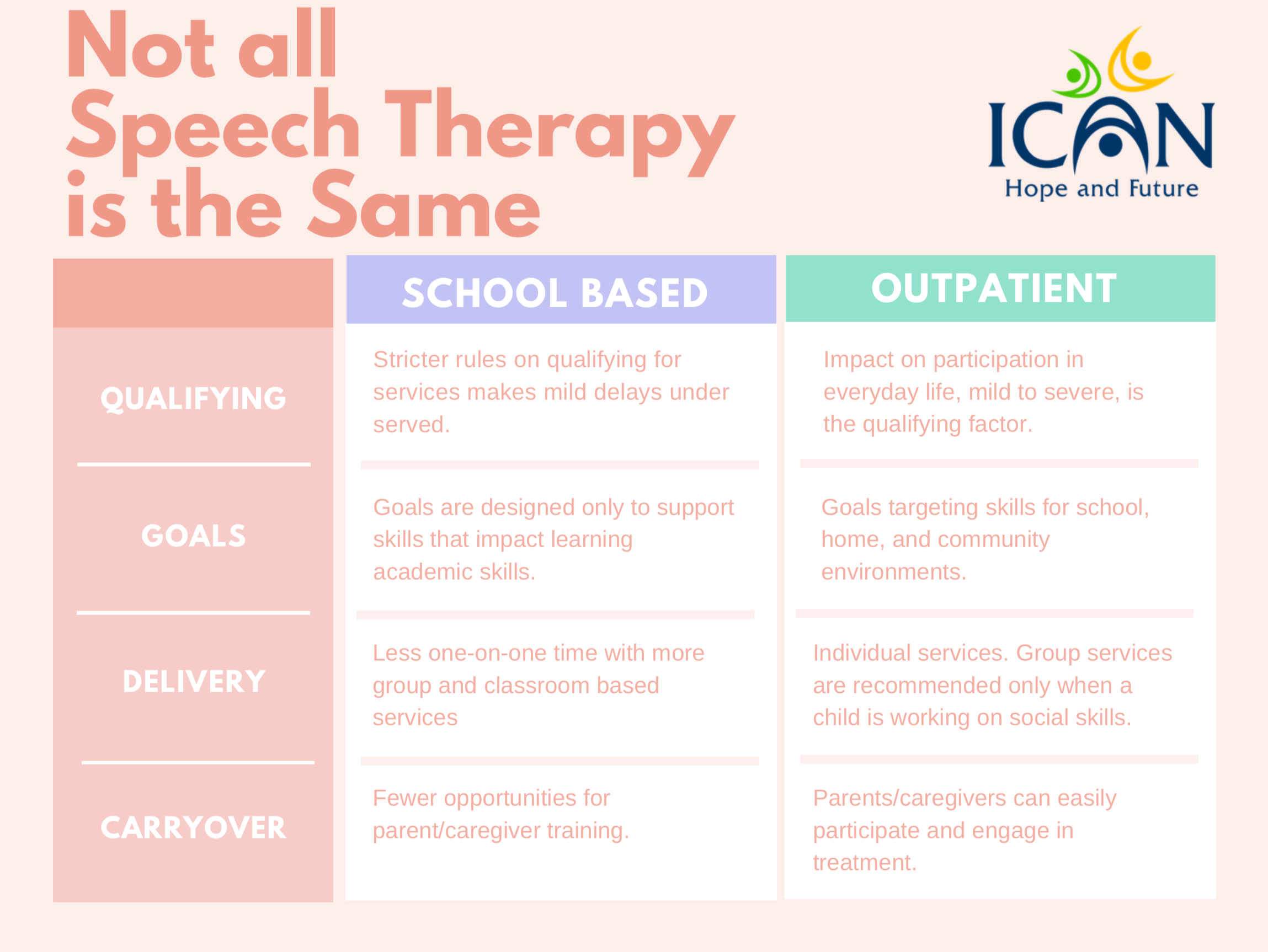Not All Speech Therapy is the Same

Pediatric speech therapists can work in a variety of settings including schools, private outpatient clinics (like ICAN), hospitals, and even within client homes. The setting in which services are provided often impacts the way these services are provided, what goals are targeted, and even who receives services to begin with. The difference between school speech therapy and outpatient speech therapy is something that some families can be confused about, so I thought I'd take a minute to clarify some of the details.
Qualifying for Services
Identifying the children who need support is the first step to helping them succeed. To qualify for speech therapy services in school a formal evaluation must be completed, and the child must score below 1.5-2 standard deviations below the mean. This means that children who have mild delays often don't receive support from the school district. In a private outpatient clinic, evaluations must also be completed, but if a child only has mild delays therapy may still be recommended. The qualifying factor depends mainly on the impact their delays are having on their ability to participate and succeed in their everyday life.
Treatment Planning and Goals
Goals in the school setting are targeting what a child needs to succeed in academics. Treatment plans collaborate with classroom curriculum and helping a child participate in the school day routines, completing assignments, and working with others in the classroom. Schools are not mandated to target skills that are not related to academics. Outpatient treatment plans strive for a wholistic view of intervention. Targeting everything from home routines, community outings, family centered goals, and academic goals.
Delivery Model
One of the main differences is HOW children receive speech therapy. SLPs in schools often lead therapy in group settings. Sometimes within smaller groups (6-7 children) and sometimes in ‘push in' therapy where the therapist leads the entire class in an activity. This is a great opportunity to participate in therapy within the school-day routines but offers very little one-on-one attention to each child. In outpatient settings, therapy is almost always individual one-on-one treatment, with group services recommended only when a child is working on developing skills related to group work or social skills. Individual therapy means that goals, activities, and supports are targeted specifically on your child's goals and skills.
Opportunities for Carryover
Because school district services are only mandated to support academic skills, carryover of skills taught in school therapy is often limited. SLPs at schools have limited access to parents/caregivers to provide training to help with carryover to other environments. Outpatient settings offer easy access for caregivers/parents to receive training, and even attend sessions when appropriate.
Bottom Line
A blend of both of these services is likely the best-case scenario for your child. Collaboration between your child's speech therapists (private and school) is easily done and can ensure your child's success across all environments.